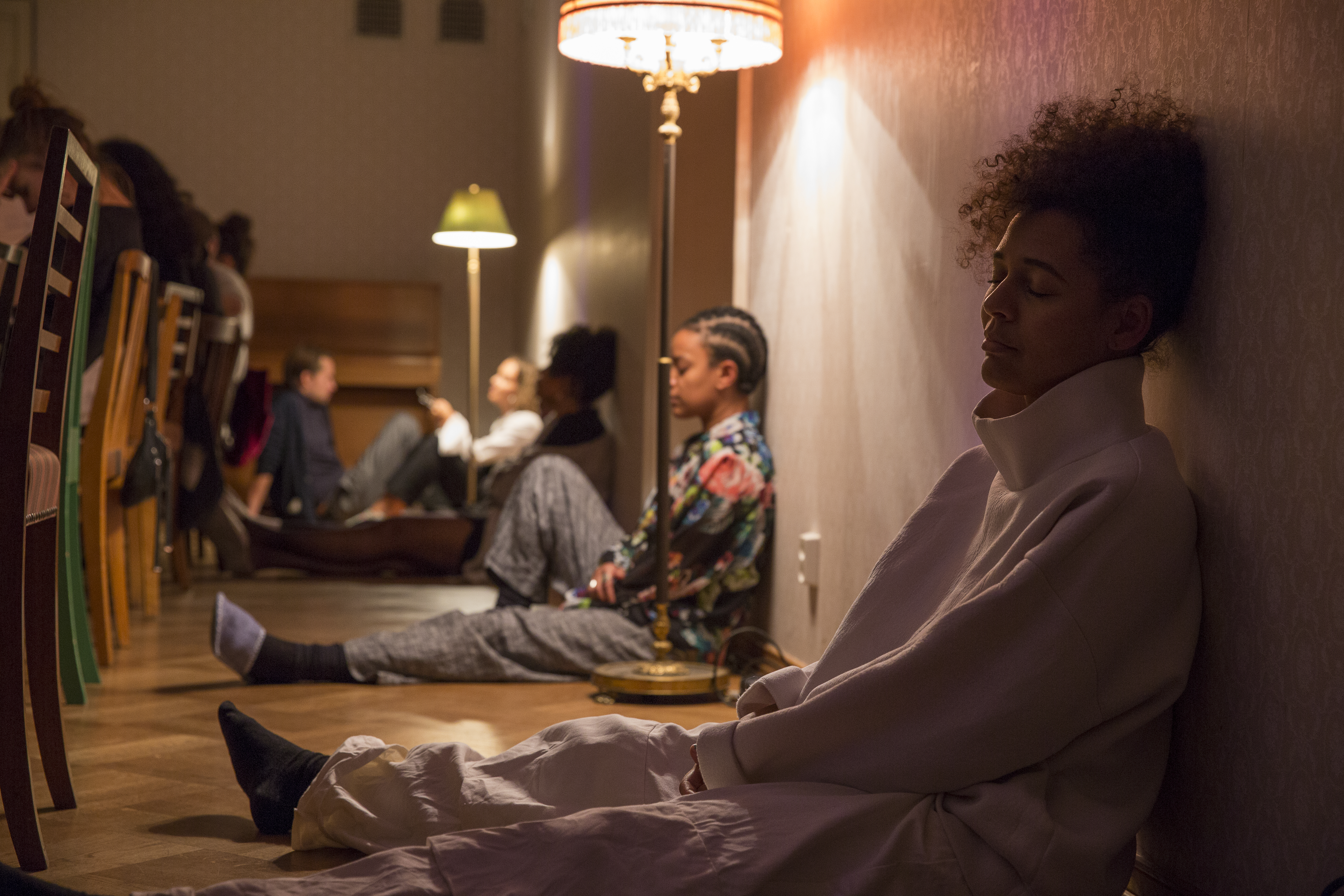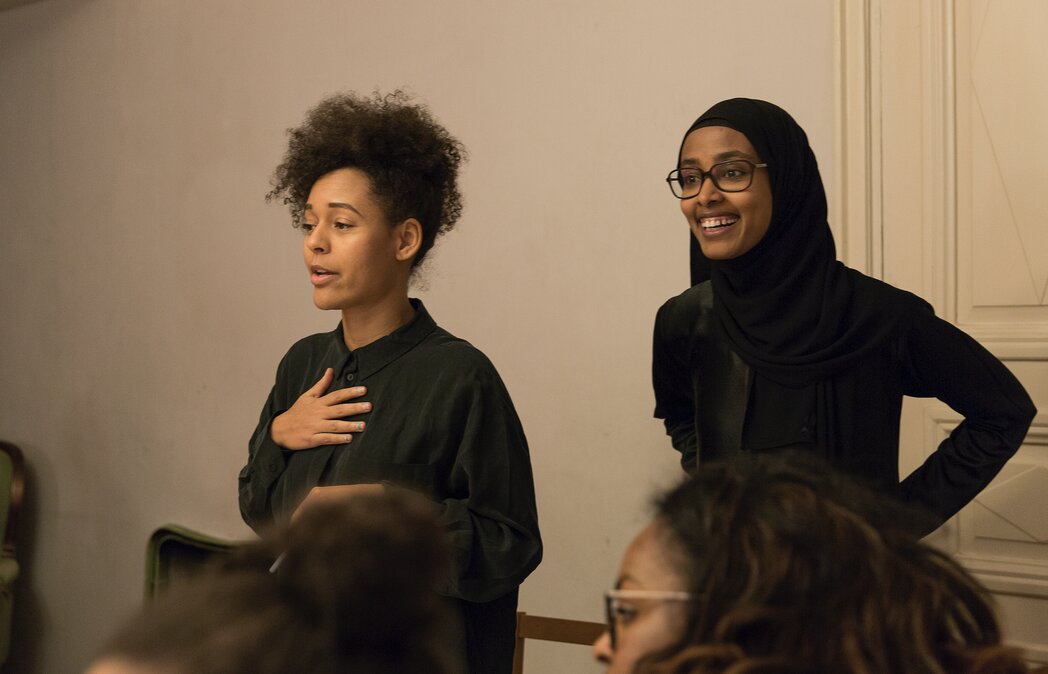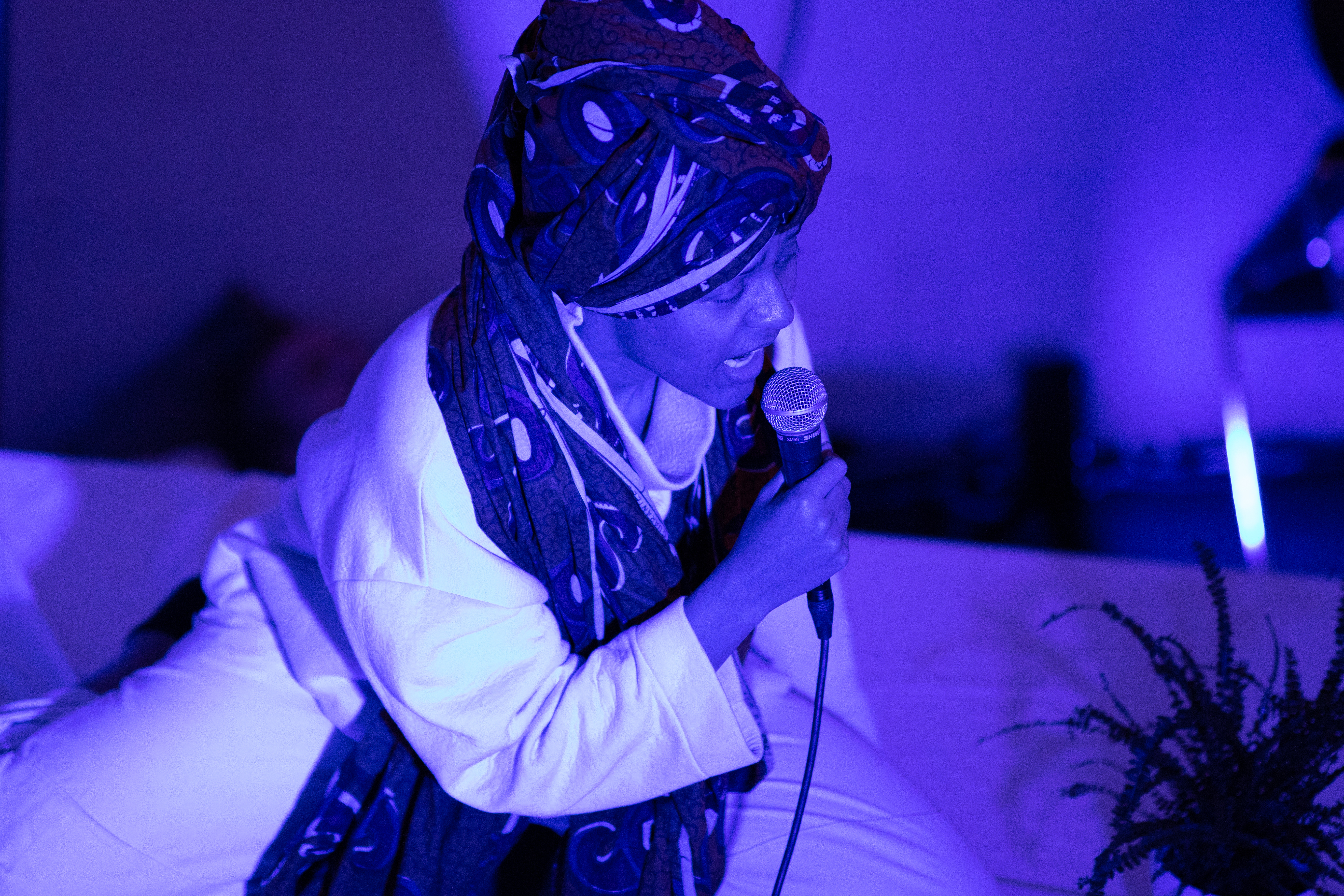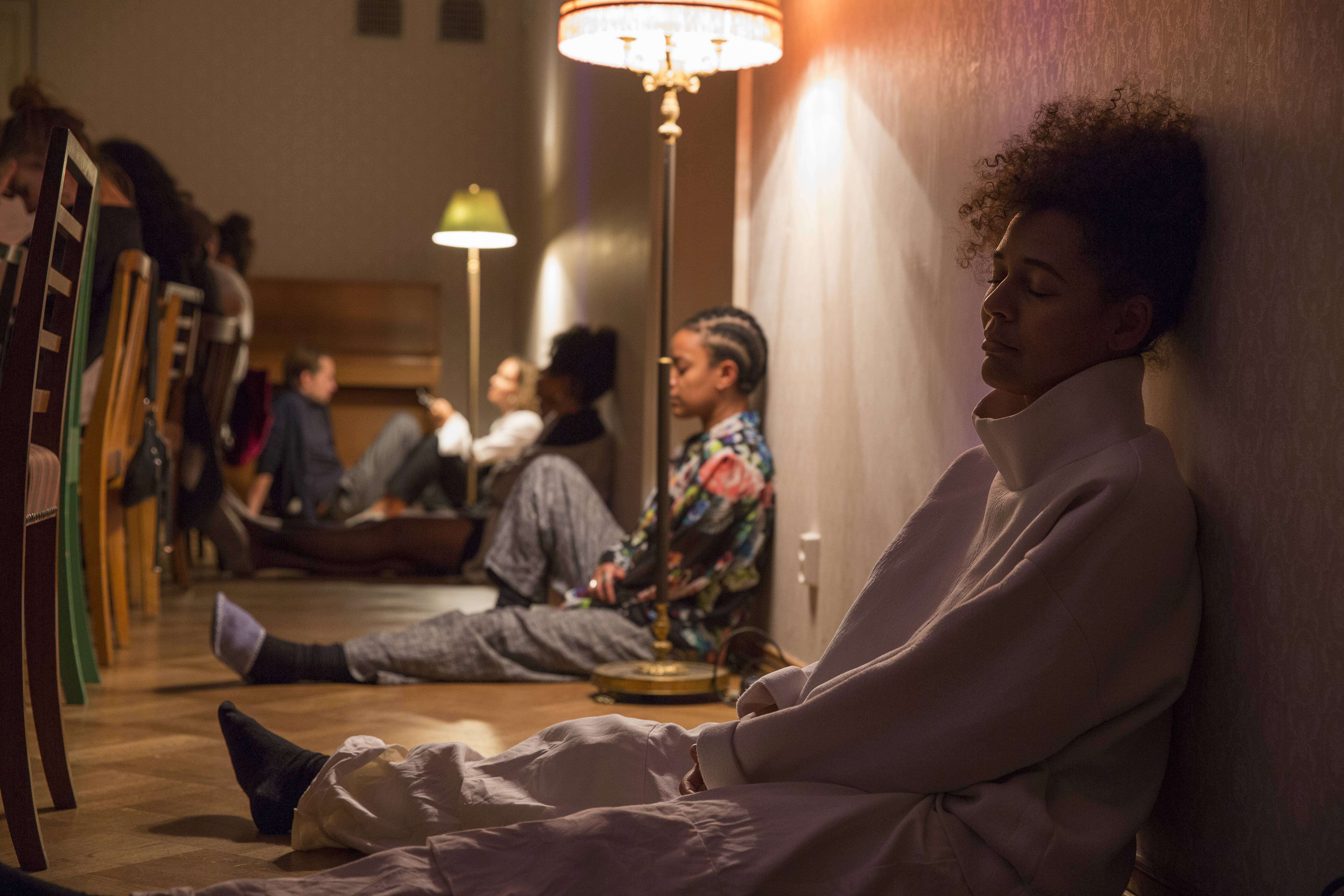Words by Inês Carvalho.
If we imagine a future without social oppression, racism, homophobia, or climate crisis, what would it look like? These and other questions inspired Feminist Futures, a cross-collaborative project supported by Perform Europe that rethinks how artistic work is created and presented. We spoke with dance artist Sonya Lindfors about this project that combines workshops, talks, and two performative works: Cosmic Latte and We Should All Be Dreaming, in collaboration with Somalian-Finnish writer and activist Maryan Abdulkarim.
In Feminist Futures, dreaming is the medium to reflect on feminism, representation, power structures, and decolonising practices. For Sonya, a Cameroonian-Finnish choreographer based in Helsinki, this process places art as a space for dreaming about a better future and discovering how to work towards it:
“Feminist Futures is an invitation to dream of collective futures where we can all coexist” – says Sonya – “How would the future look like if everybody would have what they needed, without social oppression?” The title of the project also combines the theme of the works with the aim of finding new sustainable ways of touring. “I think the title is exposing a bigger question – what do Feminist Futures of performing arts look like? How would it work? How would we tour? How could we diversify the artists and makers? Who has the opportunity to tour right now? How can we increase those opportunities? There’s a lot in the title already, posing different questions and aims, some of each we have been able to touch and some of them remain for the future” adds Sonya.
Both performative works, Cosmic Latte and We Should All Be Dreaming, were mutually inspired by local encounters that have been taking place since January 2022 in Norway, Denmark and Germany. “In this project, we try to be with local artists, so we can also understand what’s happening in that specific context. And that has been very precious to the work. With all these encounters, we are actually redefining it – where are its borders, if it begins with conversations, interviews… That’s the core of the performative part where we come together”.
In Cosmic Latte, Lindfors plays with a speculative future where black and white are no longer opposites but contain one another instead. We Should All Be Dreaming is an invitation for participants to spend time together, listen and dream. For this reason, the international exchange has been a key part of the creative process, where local artists and their specific contexts reshape this work. “It has been amazing to see the variety of local communities and be aware of their frictions, struggles, hopes, and dreams”.
For Sonya, the biggest challenge of the work is to realise how hard it is to dream these collective futures – even for artists – which reinforces its value: “One of the most important things of this work is that we are allowed to dream different dreams in a safe space. Your dream and my dream can coexist without one being more important than others” – she explains – “This work does not reinforce opposition, but instead reflects on how we can dream of a collective future, despite our backgrounds. After each session, I felt lighter and rooted. So this practice of dreaming with other people does something to your body, it becomes an open space. Imagine you no longer feel fear… How will you breathe or move your body? There’s something very philosophical in Feminist Futures as well as something soft and playful”.
Sonya Lindfors and Maryan Abdulkarim started to collaborate in 2013, diving in together into decolonisation and antiracist practices. Since then, they have been thinking about ways to combine their backgrounds in dance, writing, and activism, and develop a long-term collaborative project that could take multiple forms. “The world is changing all the time, so how can this project change with the world and be scalable?” points out Sonya.
Both were starting to think about how the world could end when they realised how difficult it was to think about how the world would be saved. “We felt it was so hard to imagine this future, that we needed to start actively practising this on our bodies and minds”. And that was when Feminist Futures was framed. The flexibility of the format allows multiple paths for the creative process, including panel discussions, workshops, one-on-one dream sessions, performative dinners, and dance sessions. Yet, the somatic approach is always present.
“When we are dreaming, what does that do to our bodies?” – reflects Lindfors – “How important is it to find our way back to the collective, breathe together, move together, and let that sink into our bodies. Working with the somatic and working with the bodies was a crucial part of the work”.
To imagine the future, Sonya also looks into the past through the lens of ancestry: “Feminist Futures also reflects on how to be a good ancestor to somebody. What’s difficult about structural change is that we have to give up on some privileges to work for future generations. So, dreaming about the future also helps deal with the fact that we need to become good ancestors for the generations to come. Maybe we cannot see changes today, but if we do implement change, maybe they will be visible in the next century. Women voting rights seemed impossible until they were not. Gay marriage seemed impossible until it was not. Acknowledging we had some ancestors picking up some fights also inspires us to dream for future generations. While dreaming about the future, we understand the past differently. This perspective of time becomes more present through this practice”.
Feminist Futures sessions will be in London as part of the Lift Festival (23, 24 June) and Independent Dance UK (25, 26 June) through live performance and workshop format of We Should All Be Dreaming. The sessions will invite participants to work with movement, open discussions, and take part in a performative dinner to travel in time, and share food and dreams. “All participants are invited to engage in a level that feels comfortable to them” – says Sonya – “But hopefully everybody will get something out of the sessions. We’re looking forward to meeting people and discussing dreams and hopes”.
Tickets and additional information about the sessions are available here.



Photo Credits: Essi Orpana
